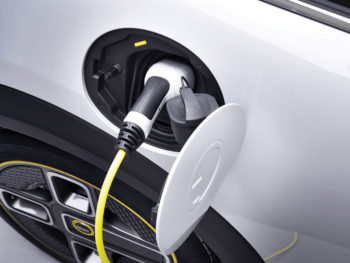Manifesto focus: The major parties’ points on transport
With all three major parties’ manifestos having been published, Fleet World reviews the main points with regards to transport.

The manifesto commitments by both the Labour Party and the Liberal Democrats to banning petrol and diesel cars are more radical than the Conservatives’
Conservatives
Dubbed ‘Get Brexit Done, Unleash Britain’s Potential’, the Conservative Party manifesto unsurprisingly majors on a January exit from the EU, if the party gets a majority, and no income tax, VAT or National Insurance rises.
For transport, there are also no major surprises but some bold claims, including a £28.8bn investment in strategic and local roads and the launch of the “biggest-ever” pothole-filling programme under the National Infrastructure Strategy, as well as a £1bn investment in completing a fast-charging network to ensure that everyone is within 30 miles of a rapid electric vehicle charging station.
The Conservatives will also build on the current ‘ambition’, reiterated in the July 2017 clean air strategy, for the sale of ‘conventional’ petrol and diesel vehicles to be banned from 2040; they’re now saying they’ll consult on the earliest date that this can happen “while minimising the impact on drivers and businesses”.
The Conservatives also promise a ‘transport revolution’, with a strategy to connect cities through measures such as the Northern Powerhouse Rail and giving city regions the funding to upgrade their bus, tram and train services to “make them as good as London’s”, with more frequent, better-integrated services, more electrification, modern buses and trains and smart ticketing. There will be investment in invest in superbus networks with lower fares. And many of the Beeching lines will be restored while HS2 could be scrapped following a review.
Labour
While the Conservatives are looking to consult on an earlier date for ending new diesel and petrol car sales, Labour has gone all out and said it will end them by 2030.
Its plans, which promise a ‘green industrial revolution’, also see Labour say it will “build a sustainable, affordable, accessible and integrated transport system, founded on the principle that transport is an essential public service”.
The bid to bring our railways back into public ownership has been much talked about but Labour also says it will promote the use of rail freight to cut carbon emissions, pollution and congestion on the roads and increase the funding available for cycling and walking.
Fleets are not being left out; plans revealed at the Labour Party Conference earlier this autumn saw the party commit to making the entire government car fleet electric by 2025; significantly advancing the Conservatives’ aim for 25% of the government fleet to be electric by 2022.
And a Labour government would urge all business car fleets to go 100% electric by 2025. To support them in the transition, Labour would introduce a range of incentives, including a two-year removal of the £320 VED surcharge for EVs costing above £40,000.
Shadow Business Secretary Rebecca Long Bailey also said at the time that it would invest £3.6bn into a “mammoth expansion of the UK’s electric vehicle charging networks”, made up of ‘en-route’ ultra-fast charge stations along motorways, and a mixture of ‘about town’ rapid and ultra-fast charge stations.
Liberal Democrats
Extensive plans for “a Green Society and a Green Economy” from the Lib Dems include a new legally binding target to reduce net greenhouse gas emissions to zero by 2045 at the latest, and implement a comprehensive climate action plan, cutting emissions across all sectors.
To aid the move to an earlier 2045 Net Zero date, the party says it aims to reduce emissions from surface transport to near zero. This includes ensuring that, by 2030, every new car and small van sold is electric; however, whether this includes hybrids in some form is not clear.
A shake-up for company car tax is also likely; the Lib Dems say they want to accelerate the rapid take-up of electric vehicles by reforming vehicle taxation. Other measures include cutting VAT on EVs to 5% and increasing the rate of installation of charging points, including residential on-street points and ultra-fast chargers at service stations.
Ultra-Low Emission Zones will also be rolled out to 10 more towns and cities in England and the party says it will ensure that all private hire vehicles and new buses licensed to operate in urban areas are ultra-low-emission or zero-emission vehicles by 2025, supported by a £2bn pot.
A new Clean Air Fund that uses industry to supplement government funding will help support innovation in zero-emission technologies, including batteries and hydrogen fuel cells.
Fleets could also benefit from the Lib Dems’ focus on workplace travel plans, to reduce the number of cars – particularly single-occupancy cars – used for commuting, and its strategy to encourage the development of car-sharing schemes and car clubs and autonomous vehicles for public use.
The Lib Dems will also invest in public transport, in particular giving new powers to local authorities and communities to improve transport in their areas, including the ability to introduce network-wide ticketing, such as in London.

















